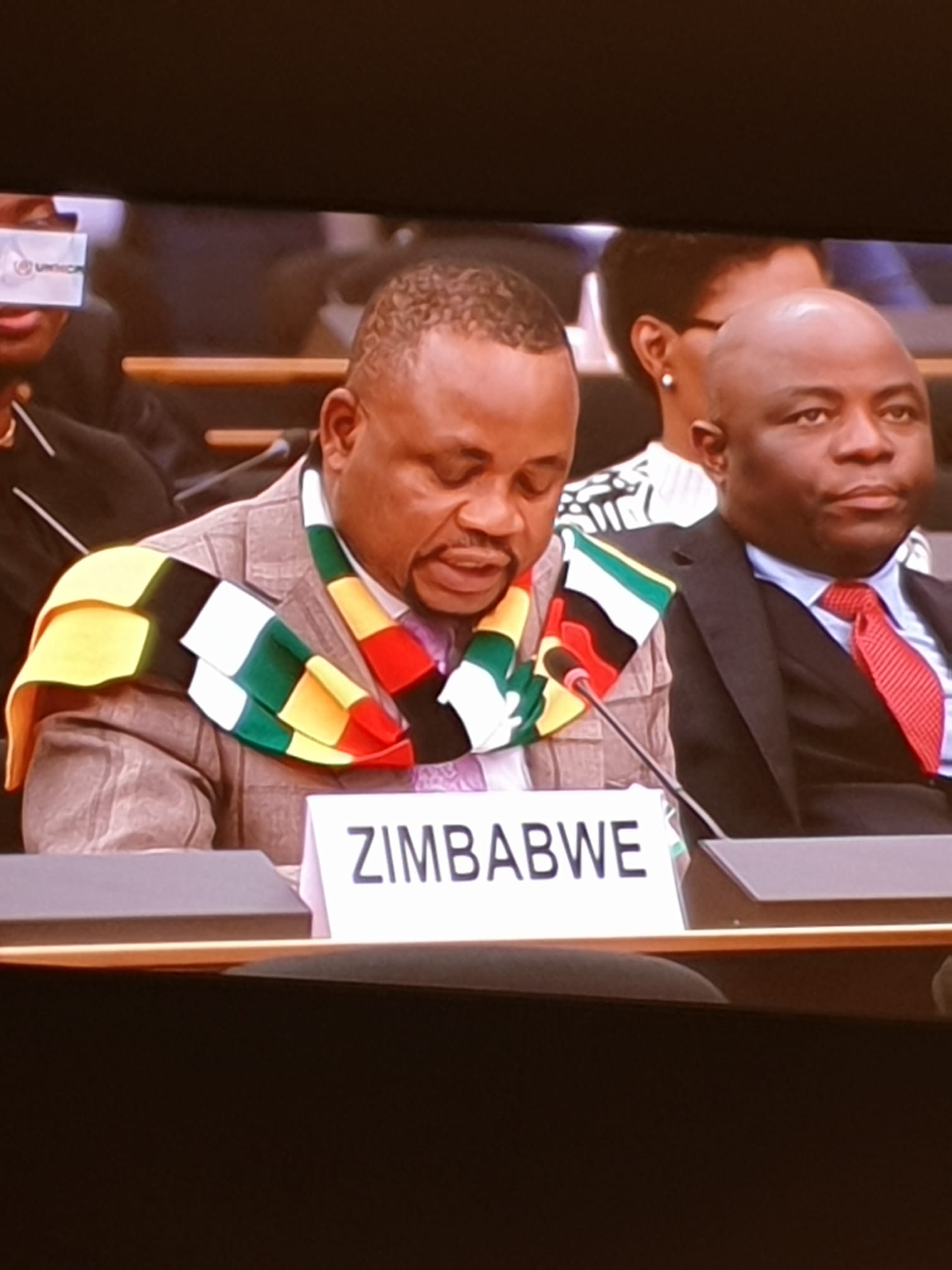Burden and responsibility sharing are the key pillars of an enhanced protection and assistance regime for 70 million victims of forced displacement of which 25 million are refugees, Professor Paul Mavima, the Minister of Public Service, Labour and Social Welfare has said.
Professor Mavima made the remarks at the First Global Refugee Forum held in Geneva, Switzerland from 16 to 18 December 2019 which was co-hosted by the United Nations High Commission for Refugees (UNHCR ) and Federal of Switzerland. The delegation included two members of Parliament namely: Hon Kindness Paradza and Hon Chief Fortune Charumbira.
‘My delegation believes that by focusing on burden and responsibility sharing we have started the business of the forum on a good note. Burden and responsibility sharing are the key pillars of an enhanced protection and assistance regime for 70 million victims of forced displacement of which 25 million are refugees.
“The refugee problem is a collective burden to us. By the same token, it is our collective responsibility to adequately provide for refugees and other victims of forced displacement. Regrettably, as we seek to strengthen the protection and assistance to these people of concern, the funding gap continues to widen,” Prof Mavima said.
He revealed that delegates to the 70th session of the Executive Committee of the UNHCR’s Programme held in October this year were informed that the funding level for 2019 stood at $3,8 billion, or 45 % as of August. Furthermore, they were informed that resources from the Central Emergency Response Fund continue to decrease.
Zimbabwe adopted the Global Compact on Refugees in 2018, mainly to provide for meaningful protection and assistance to refugees and to strengthen the support to host countries and communities. Zimbabwe hosts a relatively small refugee population compared to the large numbers hosted elsewhere in Africa. However, the country continues to meet its obligations under the 1951 United Nations Convention on Refugees and the 1969 OAU Convention Governing the Specific Problems of Refugees Situations in Africa.
In providing for refugees, the Government of Zimbabwe is working with Development Partners, Non -Governmental Organisations and churches. For instance, the Government has partnered with the African Development Bank to expand the irrigation programme at Tongogara Refugee Camp for the benefit of both refugees and the host community in an effort to enhance self-reliance and food security.
Zimbabwe also joined other member states in pledging to strengthen protection and assistance to refugees, asylum seekers and internally displaced persons.
On the margins of the Forum, the Minister officially opened the Spotlight Session (side event) on Partnership for Addressing Forced Displacement in Africa jointly organised by the Africa group, African Union, UNHCR and International Committee of the Red Cross (ICRC).
The Spotlight Session marked the end of a series of events organized in 2019 for the 50th Anniversary of the African Union Convention Governing Specific Aspects of Refugee Problem in Africa and the 10th Anniversary of the Kampala Convention on Internally Displaced Persons.
In his address, the Minister reaffirmed Africa’s commitment to resolving conflicts through dialogue as opposed to violent wars which result in forced displacement. He also urged member states to mitigate the effects of climate change which has become a major contributing factor of forced displacement.
The lead speakers at the Spotlight Session were the following:- H.E. Minata Samate Cessouma, African Union Commissioner for Political Affairs, HE Hamid Loza, Minister of Foreign Affairs for African Affairs, Mr. Peter Maurer, President of the International Committee of Red Cross and Mr. Xavier, Devictor Manager of Fragility, Conflict and Violence Group in the World Bank.
